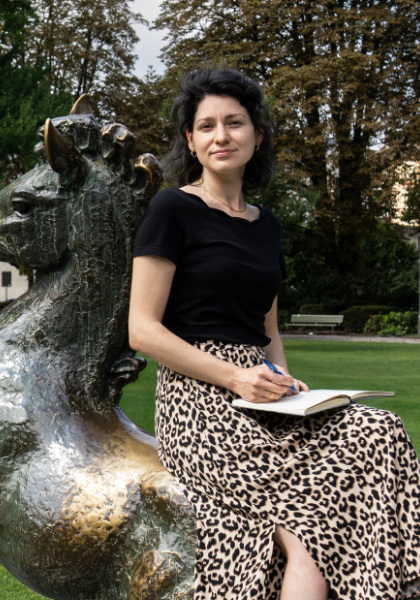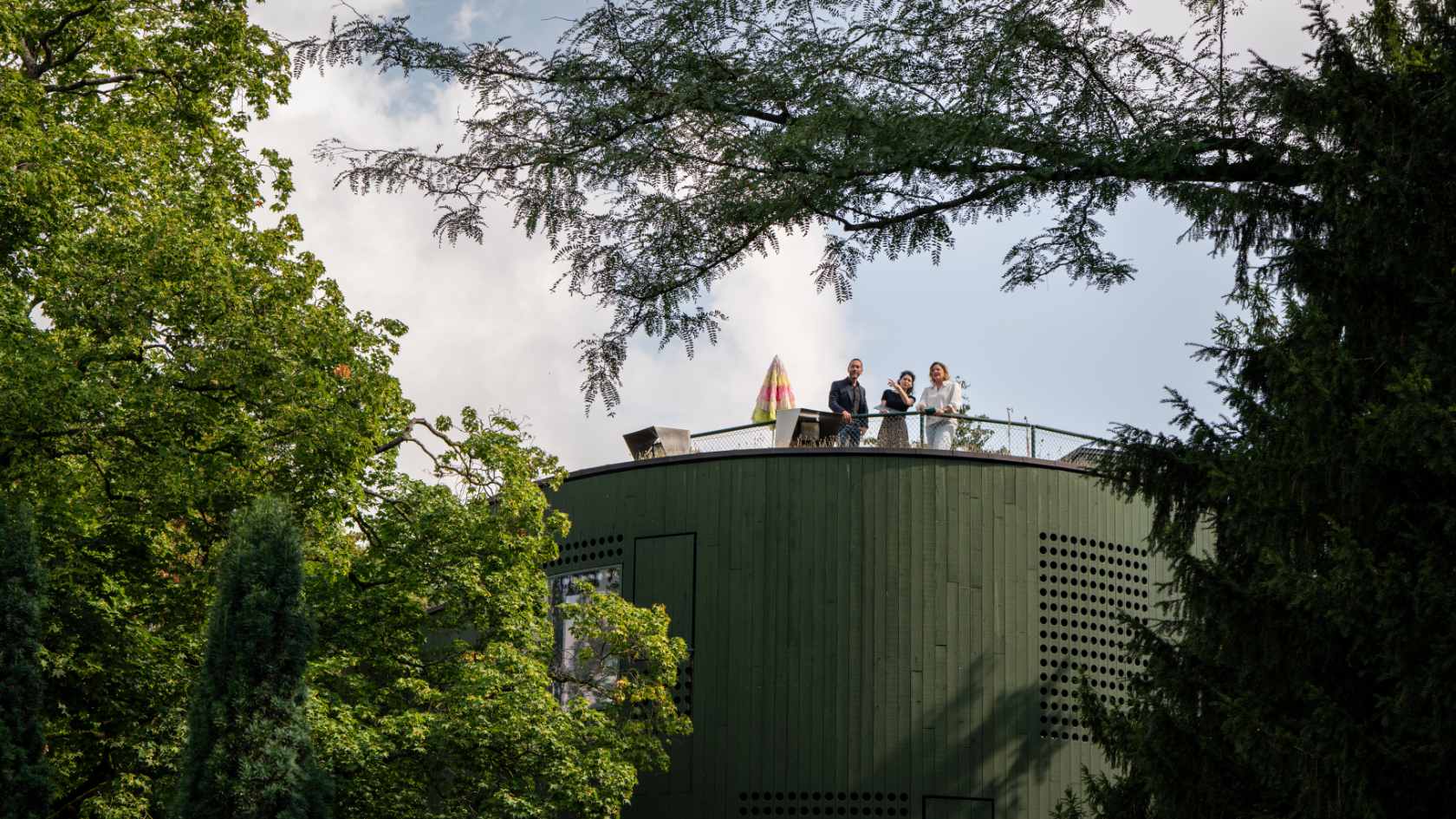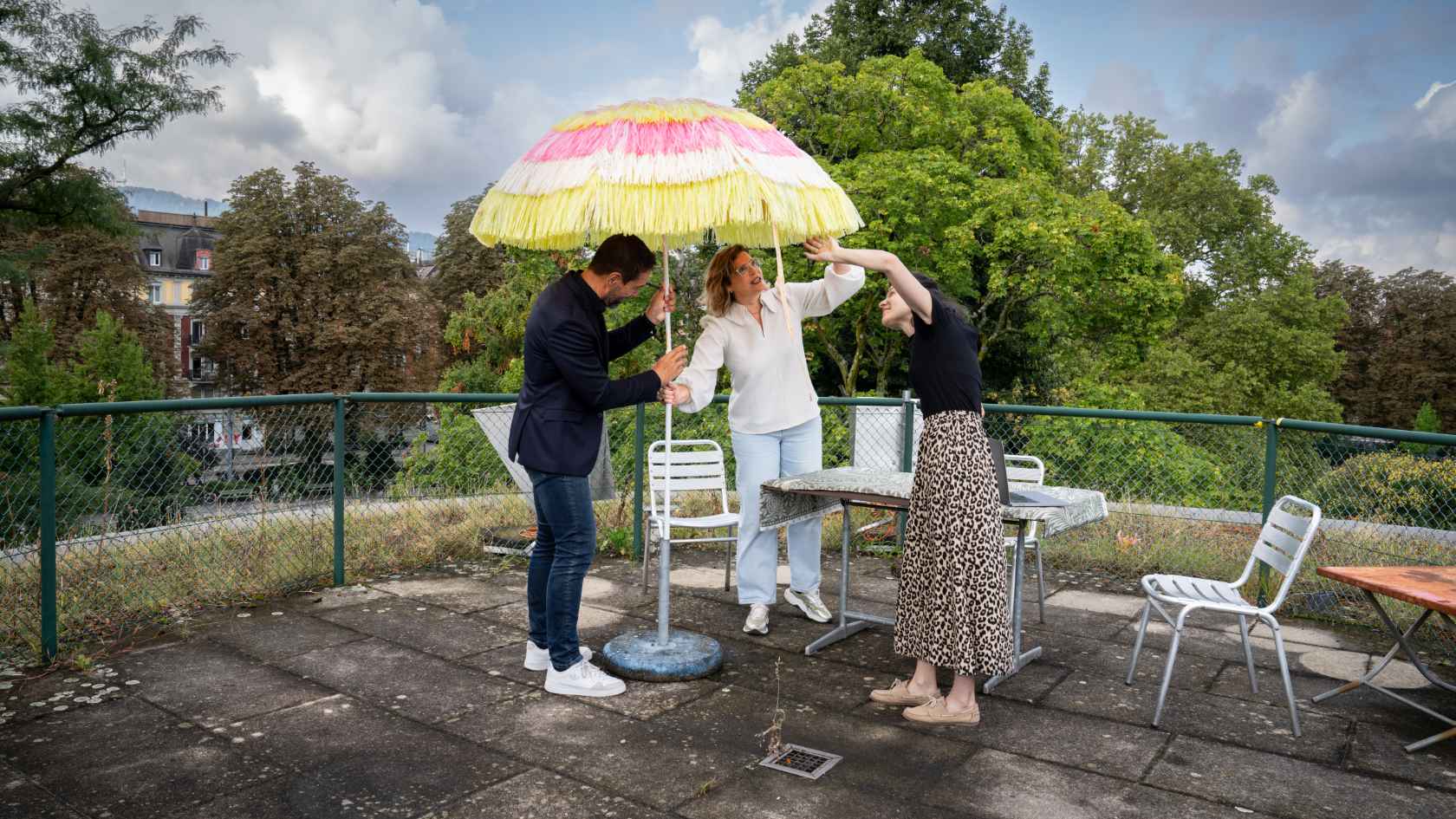A More Joined-Up Approach
The Bäckeranlage is an oasis in the heart of the city of Zurich. With huge trees, green space, a paddling pool for children and a restaurant, the park is popular with people of all ages. Since the 1970s, it has also frequently been used as a meeting place by homeless people and drug users. This has led to conflicts between the different user groups – and to calls from policymakers for a crackdown on drug users and dealers. The question that keeps arising is therefore: how can this space be used peacefully?
It is not only a politically relevant question, but also a scientifically interesting one, says Chiara Diener. In her thesis, the PhD candidate in German studies is exploring interactions between people in social spaces – but with a focus on theoretical aspects. Alongside her thesis, she completed a module at UZH in which she was able to consider the topic on the basis of a real-life social hot spot. She was interested in the question of whether the spatial design of the Bäckeranlage park is part of the reason why conflicts arise.
The module is called Crisis and the City: Urban Challenges and Crisis Competence in Zurich’s Urban Space and is run by the Center for Crisis Competence at the University of Zurich. The idea behind the course is that participants work in interdisciplinary pairs to explore issues that have led to conflicts and crises in the city. Besides conflicts in public spaces, this also concerns issues such as the pandemic and climate change.
The need for an open mind
Chiara Diener and a religious studies student came together over their shared interest in a specific scientific method for analyzing spaces. The other student had already used the method, and Diener was interested in doing so, too. So the pair investigated the Bäckeranlage, equipped with methodological texts, camera and open eyes and ears.
In the joint semester paper, Diener primarily put forward sociological theories on urban space, and the religious studies student focused on the historical view of the park. Together, they concluded that the space was indeed big enough for the various groups to coexist. However, the relevant parts of the space are not sufficiently separated from each other – an issue that could be solved through structural measures.

I realized why certain climate protection measures aren’t as easy to implement as we might think from the outside. Everything needs to have a legal basis and has to undergo a political process.
For Chiara Diener, the experience was valuable in several respects. On the one hand, she was able to apply a new method. On the other, the cooperation was above all an exercise in openness. “You need to be open-minded to be able to write a paper with someone else, rather than on your own as you usually do. And the outcome is very different if you work with someone from a different subject area who has a different way of seeing things and brings other perspectives to the table.”
Unique collaboration
Broadening horizons, combining different subject perspectives, and analyzing a concrete societal challenge: these are the very skills that the module on urban challenges and crises promotes. The module, open to Master’s and PhD candidates, is not only interdisciplinary, but also transdisciplinary, and was run by UZH’s Center for Crisis Competence in the 2024 Fall Semester for the first time. As well as covering different disciplines, it also sought to involve partners from outside the university.
During the pandemic, it became clear that communication between the science community and society isn’t always optimal. This gave rise to the idea of a cooperation between the university and the City of Zurich. As part of the three-year project, UZH is also for the first time organizing a course in collaboration with the city.
In terms of content, the course explored the conflicts and crises faced by the city of Zurich, and how the city can brace for future crises. The module is split into thematic blocks, each of which is dedicated to a specific urban challenge.
Valuable discussions
By way of preparation, the students read texts from different disciplines on the subject in question. The course takes a co-teaching approach, whereby experts from the university and from the city administration each contribute their knowledge and perspective. Participants also visit locations that pose challenges in the city together – such as the Bäckeranlage park or a refugee shelter.
Thirty students from five faculties took part in the first edition of the module, taking the rare opportunity to step outside of their subject areas and engage with different points of view. Chiara Diener was particularly interested in the following questions: what do political scientists think about how emergency legislation should be legitimized in a crisis? And what can sociologists tell us about how measures to tackle climate change can be made socially acceptable? “Experiencing this pooled and wide-ranging expertise was really impressive,” says the PhD candidate.
One of the eye-openers for her was the involvement of representatives from the City of Zurich. She says that the insight into the legal and political conditions and the constraints of a city administration made a real impact. “I realized why certain climate protection measures aren’t as easy to implement as we might think from the outside. Everything needs to have a legal basis and has to undergo a political process.”
Better solutions
“This is precisely why the transdisciplinary approach is worthwhile,” says Eveline Odermatt. The social scientist at the Center for Crisis Competence co-designed, coordinated and co-led the module as a member of the teaching staff. “If we combine the approaches of different subject areas with real-world perspectives, we can find better solutions to problems. This is particularly true in a world in which the challenges are becoming ever more complex and more global.”

But it’s not just the solutions that are better, the learning outcomes are greater, too. As soon as other fields or actors from outside the university are involved, researchers have to think more about their own role, and ask themselves what they even mean by crisis and crisis resilience, and what values they bring to the discussion. “When working with others, this has to be clear and transparent. Such deliberate reflection doesn’t happen enough outside of interdisciplinary formats,” says Odermatt.
A question of time
German studies scholar Chiara Diener says that from her experience, putting yourself in someone else’s shoes is the biggest challenge. “It takes a long time to move away from your own viewpoint and to exchange different perspectives – this one-semester module was just the beginning of the process.”
Markus Meile, chief of staff of the Zurich municipal crisis office, is open to the idea of continuing the collaboration between the university and the city. He says: “We were immediately excited when UZH approached us about a collaborative course.” He believes that participation in the current project has already paid off, referring to the discussions and semester papers that students have written on topics such as heat reduction, the housing crisis and conflicts in public spaces. “This work has contributed insights and new ideas that enhance our point of view as a city,” he says.
The module on urban challenges and crisis competence is to be offered a second time in the 2026 Spring Semester. Eveline Odermatt is confident that the idea can be scaled up – beyond collaboration with the city authority, for example to civil society organizations and the public. In this way, the module could become a model for a new type of teaching that enhances the perspectives of all involved.
